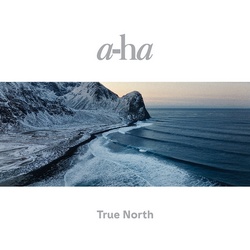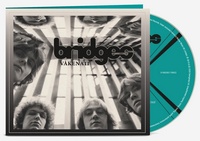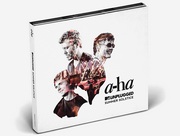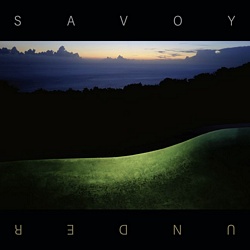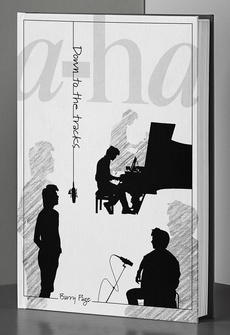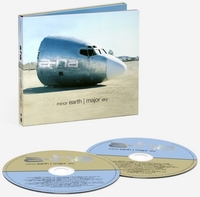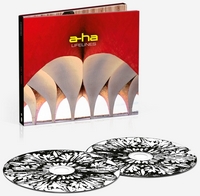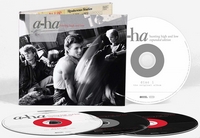Article: Magne on “Mozart og Madonna”
Transcript of radio interview, broadcast on NRK P2, June 15th 2009
Interviewed by Sven Ole Engelsvold.
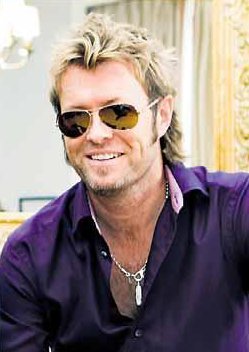
[The contest of the day is to recognise a UK television theme. The “EastEnders” theme is played]
– Good morning, Magne Furuholmen. You would have managed to play this one on keyboard, wouldn’t you?
– I guess I could have worked my way through it…
– How has the Monday morning of June 15th been treating you so far?
– Well, I have discovered that there is a traffic jam when driving into Oslo in the morning. So that was not a good thing.
– That was a new experience?
– It made me wonder why everyone are leaving for work at the same time, why the working day isn’t organized in a different way.
– You are obviously in the middle of a new and hectic a-ha release, which I’m sure many have noticed. Things are looking promising, this time around?
– Yes. Sometimes things are going your way, and that’s always nice.
– We have asked you to come to our England-week here on “Mozart og Madonna”, and for a good reason. It was in London that things really started to come together for you guys in a-ha. That’s where it all started. We’ll be going back to 1981 together with you, Magne Furuholmen, after we have gotten in the right a-ha mood with the song that went straight to the top in England.
[“The Sun Always Shines On TV” is played]
– That was “The Sun Always Shines On TV”. Which was a big hit for a-ha in England?
– Yeah, it went almost straight to number one.
– We’ll be going back in time now, to November 1981, I think it was. You and band colleague Paul Waaktaar had big ambitions about turning your music into a full-time job. So you decided to go to what someone called the homeland of music, and its home town London, in England. To make new contacts and get started. Why were you so sure that you wanted to go to London?
– It’s easy, in hindsight, to see how important London has been for a-ha. For us, it was because London was the closest music metropolis and because we were really into Jimi Hendrix – who came to England and then became famous. So I guess it was partly a dream and a hope, and also a realization of how difficult it would be to become big in Norway first, and then going abroad. So we thought; why not start out where it’s the most difficult and make it so much harder for ourselves. And that’s what we did.
– And that says something about the level of ambition that you guys had. How was the music metropolis of London for a young musician back in those days, in late 1981?
– It was an extreme culture shock, because we came from a country which only had one radio station at the time, where pop music was only played now and then. So instead we tried to tune in to foreign radio stations and buy records, or just hang out at the record store listening. And then we arrive in London and get bombarded with new music, new bands – pop and rock – every week. So that was very formative for us as a band, that first year we spent together in London. It changed us as musicians and as a band, and was very formative for a-ha.
– In what way did it change you?
– We discovered and opened up to more commercial music than what we had listened to before. We were rather stuck in the sixties, in a way. We had noticed punk music and thought it was cool, but we tried our best to hold onto the sixties-sound in the music we did ourselves. New music did find its way over to Norway, although usually a bit later, but when we went over there and realized how many people that were actually trying their luck in the music business, yet how diverse the whole scene was… What would appear as one style of music in Norway, like New Wave, would appear in England as still being in the melting pot – there were no rules as to how it should sound. So we started to record demos on our own, using the technology that was available at the time. This was the beginning of sequencers and synthesizers, or not actually the beginning, but it was new to us. So that really shaped our sound.
– So how did you go about making contacts with the right people?
– We were rather useless in that regard. Paul and I started out by placing an ad in Melody Maker, in which we were looking for a guitarist and a vocalist, I think… I can’t remember exactly. But we did get visited by a lot of hopeless… Let me put it this way; those who weren’t hopeless took one quick glance at us before turning on their heels. And those who were hopeless; we spent a long time trying to convince them, using an acoustic guitar, whistling and a synthesizer. After a while we realized that we needed something special, so we took out another ad, this time looking for an electric harpist. We were thinking; “A trio with a harp – that hasn’t been done before”. There was probably a reason for that… But we did actually find a male harpist, who joined the band for a while.
– And that would have been a very different a-ha.
– It still exists as a curiosity in a parallell universe, I guess.
– You mentioned the simple music equipment earlier. Eventually you had to leave London and return home to make more money for a new stay and a new attempt. And then you returned to London in 1983, and things started to get rolling.
– We didn’t actually return to Norway just to make money. We went home to get Morten Harket, because we had already had some contact with him, and it was at least clear to me that we needed someone of his… He was already a star, you know, before he had even started on that journey. I was working in a pub during the daytime, just to pay the bills for Paul and me, and after a while it all started to get quite bleak. But we tried to pretend that everything was going great, of course. We would send postcards home to Norway, saying that we were flying high – or at least that morale was high. But eventually we realized that this wasn’t working, we had to go back home and make some music, record more demos – do it properly. And we needed Morten to join us, that was my thought. We wouldn’t be able to do it without him, we needed someone who could be the frontman…
– And that’s what he became.
– Yeah, he definitely did!
– And then you and Paul and Morten moved in together, I think it was in 85…Orfali House?
– No, it was in ’83 that we went over there.
– Yeah… Yeah, that’s true. But you moved into house number 85…?
– Oh, number 85 – yeah, that’s correct! [laughs] That ended up as a fateful number for us, in many ways…
– Indeed. It was in 1985 that “Take On Me” became a big hit. And that’s a fantastic segue into the next song, “Take On Me”.
[“Take On Me” is played]
– One of the songs that have had the most airplay around the world, at least in certain countries and the USA, and not least in England – which is our theme of the week. And Magne Furuholmen is still a guest here on “Mozart og Madonna”. And this tune, “Take On Me”, the early beginnings of making that song started in Eel Pie Studios in London, if I’m not mistaken. And ended up as your breakthrough in England in 1985. Magne, you know London quite well…
– I did live there for twelve years.
– …yes. How do you feel the city is holding up these days, as a capital of music? You said it was a bit coincidental that you ended up there in 1981, but if you have followed it, how do feel it’s holding up?
– Well, I’m very fond of London, both as a city and as a capital of music. It wasn’t coincidental that we ended up there, it was just the closest big city. I continue to feel that England and London has the ability to forget things quick enough that it can be re-invented again with great eagerness. And that’s one of the criteria of pop music. So I would actually like to return to London and live there for a while, although the rest of my family have some objections to it…
– Yeah? By the way, we will later be joined by a Norwegian who lives in London, as Lisa Stokke is coming into the studio soon. But now, Magne, I thought you could be our guide to England and London, before we’ll hear some new music from a-ha. Where in the city of London should people go to experience the best concerts, if there are any Norwegians who are planning to go over there for the summer holidays, for example?
– Hmm. So many hot, new areas have popped up since I last lived there, so I guess I don’t have the most up-to-date guide for music concerts. But there is a lot to choose from. I still have a fondness for areas like Notting Hill, which was rather shabby when we first came there, but which has become über-fancy by now. And then you have these posh places like Primrose Hill, which is more like a village, Hampstead Heath and those areas that are quite idyllic. And then there’s East End, which is awesome, Hoxton Square with a lot of cool gallerys if you want to go in that direction. And it’s always cool if you get to see concerts at Albert Hall, or Shepherds Bush Empire – that’s a place where I like to go to concerts.
– And you guys are going to spend almost the whole month of July in London?
– Yeah, we’re going to play and talk our way through July in London. There’s a surprising amount of interest and love directed towards the band over there these days.
– So you’re going back to London, some 20-odd years after starting out. Magne Furuholmen, thank you very much for coming.
– Thanks.
[“Foot Of The Mountain” is played]

 For the latest updates,
For the latest updates,